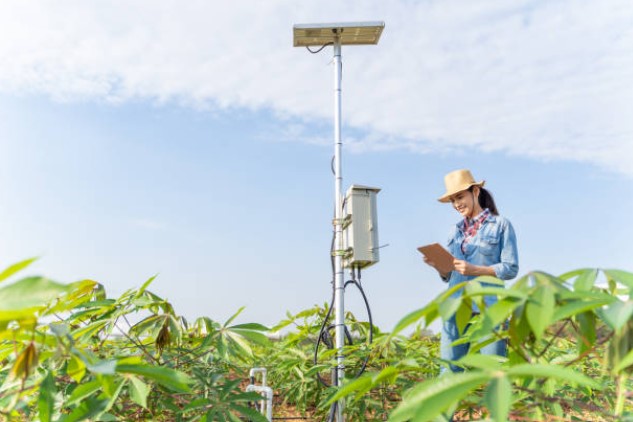Experts addressing a panel discussion organized by Costa Rica’s Permanent Mission to the WTO, revealed that the country’s agricultural exports had increased, benefitting the rural economy and increasing food security.

San Jose, 18 November 2020 (IICA) – Innovation, production diversification, capacity development and value addition, through a national bioeconomy strategy, are moving Costa Rica along the path to greater agricultural sustainability, with the support of the public and private sectors and international cooperation.
Work on these fronts is what has enabled agriculture to sidestep the effects of the current health crisis, in the opinion of specialists in a panel discussion organized by Costa Rica’s Permanent Mission to the World Trade Organization (WTO).
Panel members included Gloria Abraham, the country’s Ambassador and Permanent Representative to the WTO; Duayner Salas, the Acting Minister of Foreign Trade; Pedro Beirute, Director General of the Export Promotion Agency (PROCOMER); Xinia Chávez, Executive Director of the Coffee Institute (ICAFE); and Gabriela Couto, Consultant from CRBiomed.
The panel discussion also included presentations from the Director General of the Inter-American Institute for Cooperation on Agriculture (IICA), Manuel Otero; and Technical Coordinator of the IICA Costa Rica Delegation, Sacha Trelles.
Gloria Abraham remarked that, “We require a healthy dose of sustainability, drawing on innovation, science and collaborative work, to increase productivity. Latin America and the Caribbean has enormous potential to capitalize on the region’s biodiversity and if we link this to our policies, we can achieve the development we so desire”.
Costa Rica has chosen to exploit its environmental and sustainability attributes to the fullest”, she said.
On the other hand, Otero remarked that the time had come to create a new agriculture sector to help fuel the development of the region’s countries.
He reflected that, “During the pandemic, agriculture in Costa Rica and the rest of the region has proven to be a resilient activity, a generator of well-being, and a sector that is still up and running. It is time to placed increased confidence in it, providing it with the tools for greater development, to benefit not only producers, but also the entire population of our countries”.
With the support of IICA, Costa Rica has developed a national bioeconomy strategy, in a bid to better capitalize on opportunities offered by its vast biodiversity.
Forty-seven percent of Costa Rica’s land area is comprised of agricultural farms, most of them small- and medium-scale ventures that export more than 650 agricultural products to more than 200 destination markets.
Major products include pineapple, banana and coffee.
Sacha Trelles commented that, “This is a country with great potential and it should capitalize on its gains. Agriculture plays a dominant role in tackling climate change, production and resource management challenges, areas in which the bioeconomy can provide support”.
Innovation and diversification
During the panel discussion, a presentation was given on the Descubre program of Costa Rica’s Ministry of Foreign Trade – a platform that aims to assist producers, providing provide guidance on what to produce differently, which markets to target, and on the relevant requirements.
The main objective of the program is to revalue agriculture and fisheries as sustainable activities that can increase the well-being of the country. It also seeks to attract investment in rural areas to improve social indicators.
“Through Descubre, production has improved, incorporating irrigation systems and data equipment to be more competitive in international markets”, said Henry Benavides, Agricultural Coordinator in the ministry.
“What we are seeking”, explained PROCOMER Director General Pedro Beirute, “is to make foreign trade and imports work for everyone, in an environmentally and socially sustainable way”.
Another area in which Costa Rica has made headway in terms of sustainability is in the coffee sector, an industry of high social, economic and cultural value to the country.
Through ICAFE and international cooperation, coffee farmers have developed a mechanism, known as Dólar Cafetalero, which allows them to obtain greater economic benefits, boost their productivity, while offering opportunities for the upcoming generations.
Through this mechanism, overseas clients can determine who produced the coffee, how and under what conditions. Thanks to this and to other distinguishing aspects of the country’s coffee, its value has increased in international markets.
According to ICAFE Executive Director, Xinia Chavez, this differentiation has enabled Costa Rican coffee to attract a market value of more than 200 dollars per quintal in 2020, compared to the 100 dollars per quintal value of other producing countries.
Another strong contributor to the export market has been medical devices, for which bioeconomy-based organic inputs play an important role and are the source of numerous opportunities.
For Gabriela Couto, consultant of CRBiomed, “public-private interaction and differentiated financing are key to driving the country’s bioeconomy industry. It is also important that the environmental component be incorporated into any trade agreements that Costa Rica is signing.
More information:
Institutional Communication Division
comunicacion.institucional@iica.int











